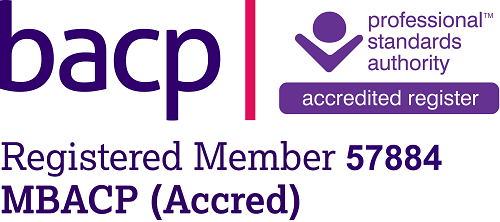Grief and Loss
Carrying on when it feels impossible…
Whether it’s the loss of a loved one or a loss in another part of your life.
We all experience loss at some point and we all grieve differently. There’s no rule book for how to deal with it or for how long it will last. It can be incredibly difficult to pick yourself up. And can leave you stuck in painful thoughts and emotions.
Picking up the pieces is hard and you might wonder what’s left. Whether the loss is a person, your work, your health, or something you’ve always wanted but have come to realise won’t happen. It can be devastating.

“I’ve achieved more growth than I thought possible. I’ve increased my self-worth, self-esteem and self-awareness. Working through trigger issues such as grief and anger, I’m now able to behave in ways that are more emotionally healthy for myself and my children.
Gemma, Therapist, Cardiff
Grief and Loss
How can counselling help?
Feelings of grief that follow a loss are natural but that doesn’t mean they’re easy to deal with.
Maybe you’ve shared the loss with family or friends but we all grieve differently and you might not be able to talk about your feelings. Or you may not want to put pressure on someone else who is grieving.
Counselling can’t bring back what’s lost but it can help you work through those thoughts and feelings.
Making sense of them in a way that’s meaningful to you. Our sessions can be a focus point to help you reflect on where you are in the grief process, gain some clarity and reduce the confusion. The grief may never go away completely but we can work to find ways to reduce it’s intensity and help you do what feels impossible right now – carry on with the rest of your life.
The range of emotions in grief are vast.
You may feel (or have felt) numbness, confusion, shock, disbelief, anger, denial, guilt, regret, shame and despair. All on top of an overwhelming sadness. Anniversaries are particularly difficult and it’s easy to feel lost inside these powerful emotions. In more complicated grief you might notice other symptoms like anxiety, low mood, loss of confidence or a growing reliance on alcohol, drugs or something else.

How We’ll Work
You may have heard of the 5-stages of grief and loss*. This is an outline of the grief process. You probably won’t experience each in stage in this order but it can be a guide to our work. *Based on the model devised by Elisabeth Kubler-Ross (1969).
1) Denial
This is a natural ‘defence’ that can help manage the initial shock and pain of grief. You might also feel numb and you could find yourself getting on with things as you normally would, as your mind tries to process what’s happened.
2) Anger
As the numbness wears off, the overwhelming pain can be masked by anger. That can be directed outwards (towards other people or things) or inwards towards yourself.
3) A Need to Regain Control
In the face of hopelessness and vulnerability, your thoughts may turn to what could have been. You might find yourself thinking about what you could (or should) have done to avoid the situation or made it different somehow. This can bring up feelings of guilt, regret, blame and shame.
4) Depression
Thoughts and feelings of hopelessness and despair can be overpowering and stop you from being able to do things. Or they can be in the background and make you feel as if you’re just ‘going through the motions’ of life.
5) Acceptance
This looks different for everyone. It could mean you’ve reached a point where the emotions aren’t so intense anymore. Or you’re starting to see a way forward and are beginning to get some enjoyment from life again.
Wherever you are in the grief process, if you think this approach could benefit you, please get in touch.

Photo Credit: Photo by Danielle MacInnes on Unsplash | Image by Pexels from Pixabay | Photo by Marc-Olivier Jodoin on Unsplash